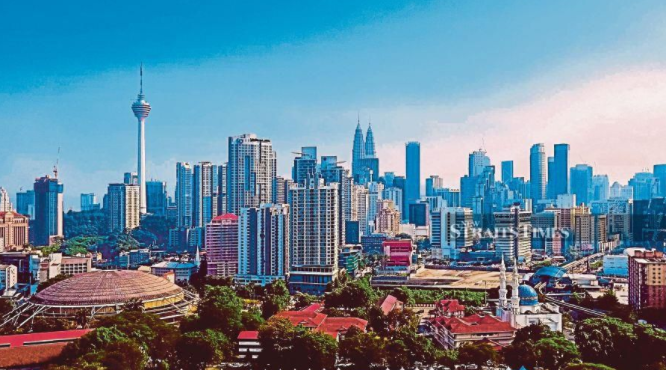Malaysia's mojo for FDIs still there

January 28, 2021 @ 9:43am
Ayisy Yusof
KUALA LUMPUR: South Korean firm SK Nexilis' proposed RM2.3 billion investment in Sabah shows that Malaysia is still competitive in attracting foreign direct investments (FDIs), economists said.
Policy reforms to cut red tapes as well as tackling economic crime and enhancing human capital were key strategies to improve the country's competitiveness, they added.
SK Nexilis, the world's number one technology in manufacturing copper foil for batteries, has chosen Malaysia as its first overseas production base.
It planned to set up a new copper foil manufacturing facility at Kota Kinabalu Industrial Park with an annual production capacity of 50,000 tonnes, the International Trade and Industry Minister Datuk Seri Mohamed Azmin Ali said on Tuesday.
Azmin said the government was pleased that a subsidiary of a Fortune 500 company had chosen Malaysia as its first overseas investment location.
"This is one of the many success stories where the Malaysian Investment Development Authority has facilitated to bring quality investments into the country.
"As a global leader in thin-tech innovation for copper foil manufacturing, we believe SK Nexilis' presence will attract more investors to complete Malaysia's EV (electric vehicle) battery manufacturing supply chain network, making us a hub for high precision and high quality copper foil for niche applications," he added.
CARI Asean Research and Advocacy chairman Tan Sri Dr. Munir Majid said the proposed investment by SK Nexilis was great news at a time of intense competition for FDIs.
"Quality of investments is also significant and not just the nominal total. The SK Nexilis investment is well up there with high technology with niche applications, including for EVs.
"Malaysia has an opportunity to properly get into the EV market segment with Zhejiang Geely Holding Group (Geely) already in Proton," Munir told the New Straits Times (NST) yesterday.
The National Automotive Policy, he added, must be revisited to reap the opportunities from the EV market.
Munir said Malaysia should continue to improve its facilitation for FDIs as other countries were challenging for FDIs too.
"Vietnam has emerged. Indonesia is surfacing. These two countries have the advantage of a large domestic market."
Therefore, he said, there was a need for Malaysia to provide leadership for Asean economic integration and for the Regional Comprehensive Economic Partnership (RCEP) negotiations to get off the ground fast.
"We also need to enhance the human capital capability to make sure high technology investments come in, make Malaysia the hub for Asean and RCEP," he said.
Munir also urged the government not to neglect domestic investment for those markets as well.
At the recent Invest Asean webinar, Munir revealed that the Italian firms had agreed to make Malaysia their aerospace hub, focusing on Italian industrial and technological capabilities for investment here and the region.
Bank Islam chief economist Dr Mohd Afzanizam Abdul Rashid said Malaysia has a lot to offer as the country has good infrastructures such as ports, airports and land transportation.
"These allow the facilitation of the movement of goods effectively. Our communication, electricity, finance and also industrial property especially in respect to warehousing facility could also helped trade and investment activities," he told the NST.
Mohd Afzanizam said Malaysia was also well connected with the global supply chain that would help businesses to have a production hub in Malaysia.
"The availability of talent pool especially those with the right skillset would be plus points for the country as an investment destination."
However, he said Malaysia should not rest on its laurel as regional peers were moving very fast to ensure that they would be able to attract FDIs.
"We have to ensure investors who come in and those who are already invested in the country would continue to have a pleasant experience especially when dealing with the regulators and relevant authorities," he said.
Afzanizam said a key issue of bureaucracy should need to be addressed holistically as various ministries and government agencies are administering investment incentives and industrial zones.
"I think these FDIs would have done their due diligence before deciding to come in to invest in Malaysia. It would be a shame if we lose out these FDI to other countries on grounds of bureaucracy which is something within our control," he added.
